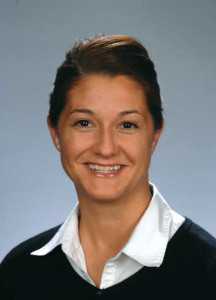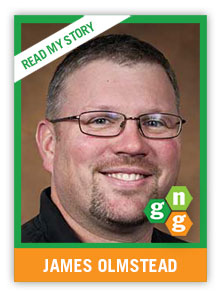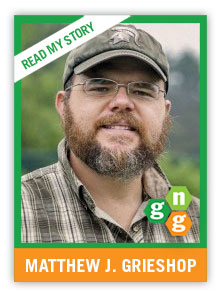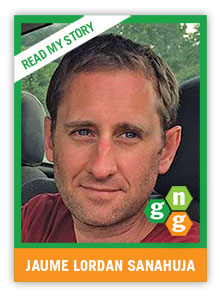GenNext Researchers: Amanda Gevens
As the next generation of growers become leaders and decision makers in their own operations, they won’t have to make those decisions on their own. There’s also a whole new generation of experts focused on the research needed to combat today’s (and tomorrow’s) challenges in the field and the orchard.
We talked with some of these researchers about the problems they’re attempting to solve, the new tools they’re using, and how they hope their work will help you do your job better.
 
Amanda Gevens
Associate Professor & Extension Specialist in Potato and Vegetable Pathology |
Primary area of research
My research focuses on the ecology and management of potato and vegetable diseases that have significant impact on yield, quality, and ultimately economics of the crop. My program investigates the nature of pathogens in their environment to better understand mechanisms of management. I have a particular interest in oomycete or water mold pathogens including late blight on potatoes and tomatoes; downy mildew on cucurbits, onions, basil, and hops; and Phytophthora crown and fruit rot on solanaceous, cucurbitaceous, and leguminaceous crops.
What specific projects are you working on now?
I currently have several ongoing projects which address pathogen characterization and management. Projects include work on potato early blight and late blight, potato common scab, hop downy mildew, and tomato leaf mold control in high tunnels.
More recently, we have been developing online weather-based disease and pest management tools to support greater adoption of IPM approaches across Wisconsin. For ‘community’ plant diseases, management in all production settings across the landscape in critical for overall inoculum mitigation.
Are you bringing any new technology, tools, or approaches to your research that might be new to these types of programs?
In our larger-scale field research, we are beginning to investigate use of unmanned aerial vehicles for assessing disease. This work will, ultimately, be useful in offering growers another means of scouting for plant disease to further support preventive and prescriptive management. While web weather-based disease and pest management tools are not new, our extension of the tools to smaller scale and organic production systems is novel. I see our efforts as offering IPM approaches to all for community disease and pest mitigation. It’s the ‘herd immunity’ vaccination concept for plants.
We have also been further investigating biopesticides for vegetable disease control. Biopesticides, at times, require specialized timing or method of application. We are accommodating these special needs in our lab and field trials to better understand the potential of this interesting group of plant protection compounds.
As the next generation of growers become leaders on their farms, what will they need to do differently to continue to be successful? How do you see your research work helping them accomplish that?
The next generation of growers/agricultural leaders need to efficiently manage farm data. Growers are doing much more than just producing quality vegetable crops these days. They must accommodate audits and certification processes for food safety and sustainability in production and post-harvest. Many are managing their own public relations in advertising their products while concurrently educating the public on the science of food production and its relationship with the environment. And, now more than ever it seems, growers are engaging politically on local, regional, national, and international fronts to ensure judicious access to natural and human resources to sustain efficient productivity.
To support these efforts, my program works to develop sustainable disease management approaches which integrate varietal resistance, crop rotation, and other cultural and chemical strategies. Disease management programs rooted in science and stewardship for human, land, and environmental health are consistent with needs and interests of the market place.
How long have you been doing research in support of vegetable growers?
Since 1997, I have been involved in research and Extension efforts which have supported vegetable growers. I worked as an IPM scout and program assistant with Cornell Cooperative Extension during the summers of my undergraduate college years. Since that time I have continued to be engaged in vegetable work through graduate school at Michigan State University and as a faculty researcher during the past 8 years. I have been in my current position in research and Extension with the University of Wisconsin-Madison and University of Wisconsin Extension for 6 years with a 70% Extension and 30% Research appointment.
What made you want to get into ag research as a profession?
I had pivotal experiences in agriculture at a young age. I started working on a vegetable farm on Long Island when I was 9 years old. I loved all aspects of the experience – planting, weeding, watching the crop grow, being outside in interesting weather, harvesting, preparing produce for market, organizing the farm stand, and interacting with the public in sales. I was privileged to work on the farm through my college years. During my undergraduate summers, I worked as an IPM crop scout with Cornell University Extension in Suffolk County, Long Island, NY. That I could combine my love of the outdoors, vegetable production, people, and academics was revelatory! I was especially attracted to plant pathological aspects of vegetable production given my experiences with late blight in potatoes. I was fortunate to work with Dr. Mary Hausbeck at Michigan State University in applied vegetable pathology during my graduate years. Since that time, I have been engaged in vegetable disease research and Extension with the University of Florida, and currently, with the University of Wisconsin-Madison.
Vegetable disease research affords me the opportunity to work with growers of various scales (home garden to large commercial acreage) and production systems (organic and conventional). Working in an area of healthy food production is very rewarding, professionally, and personally. There are wonderful people in our industries.












